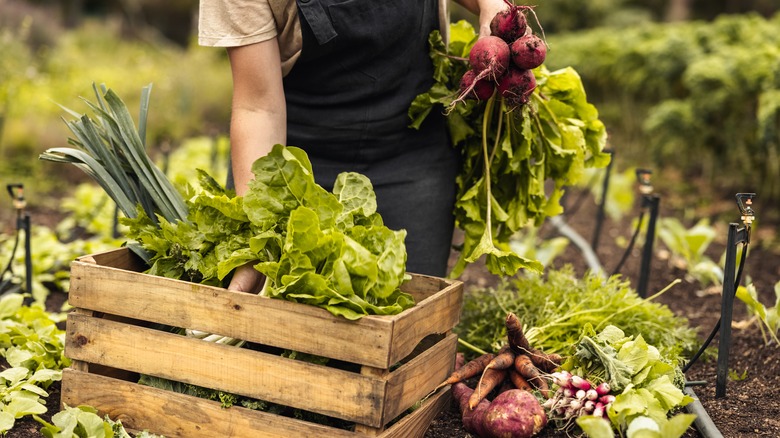This Is What The USDA Said About Climate Change At A Recent Symposium
Last week, CNN announced that the U.S. Senate passed the long-wrangled climate bill. The office of Senate Majority Leader Chuck Schumer claimed that despite giving some ground to fossil fuel companies, the deal should cut emissions by some 40% by 2030. A large part of this will be enacted through agricultural initiatives.
The Associated Press noted that more than $20 billion of the $369 billion going into climate change initiatives will be invested in the agricultural sector, specifically by expanding paid programs in which the United States Department of Agriculture (USDA) pays farmers to incorporate more sustainable methods of farming. "They are voluntary, they are incentive-based, they get results in terms of implementing conservation practices on working lands," said Ben Thomas, the Senior Policy Director for Agriculture at the Environmental Defense Fund.
One plan laid out in the bill is to change the feed of cows so that they belch less, which would reduce the amount of methane associated with beef. Another plan is to encourage crop rotation and the planting of cover crops, which are crops that aren't for harvesting but for nourishing the soil. AZO Cleantech explains that if the same crop is repeatedly planted in the same patch of soil, that soil becomes depleted. Crop rotation stops this depletion, which means that farmers would not have to rely on nitrous fertilizers which contribute to global warming.
The USDA sees this as their main environmental strategy
It might not surprise many that USDA, a department with a strong focus on farming, sees farmers as a key tool to reduce humanity's impact on the environment. This is the view that the department reiterated at the 37th International Sweetener Symposium on August 1.
Food Business News quotes the argument made by Robert Bonnie, undersecretary for farm production and conservation for the USDA, that "[The approach to climate change] has to allow farmers, ranchers, and forest landowners to choose which practices work best for them, and then provides incentives for them to do that." This largely translates to paid initiatives for farmers to innovate on their currently harmful practices.
A more striking point was made, however. Namely, climate change has become a consideration for all food-based foreign trade. The USDA stated it will take a more aggressive stance in holding its trade partners accountable for the environmental impact of its practices. That said, they also said they would be wary of countries using an environmental conscience as a trade barrier. So the radicalness of the newly expressed position has yet to be tested.

